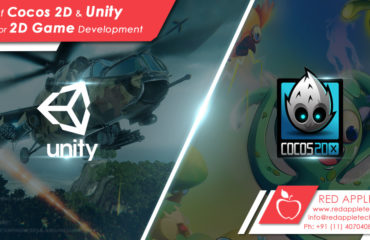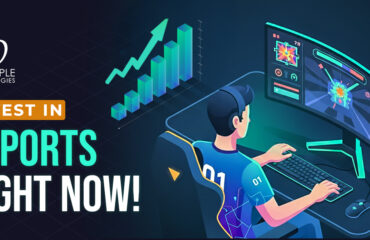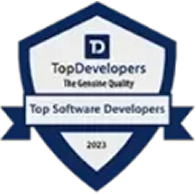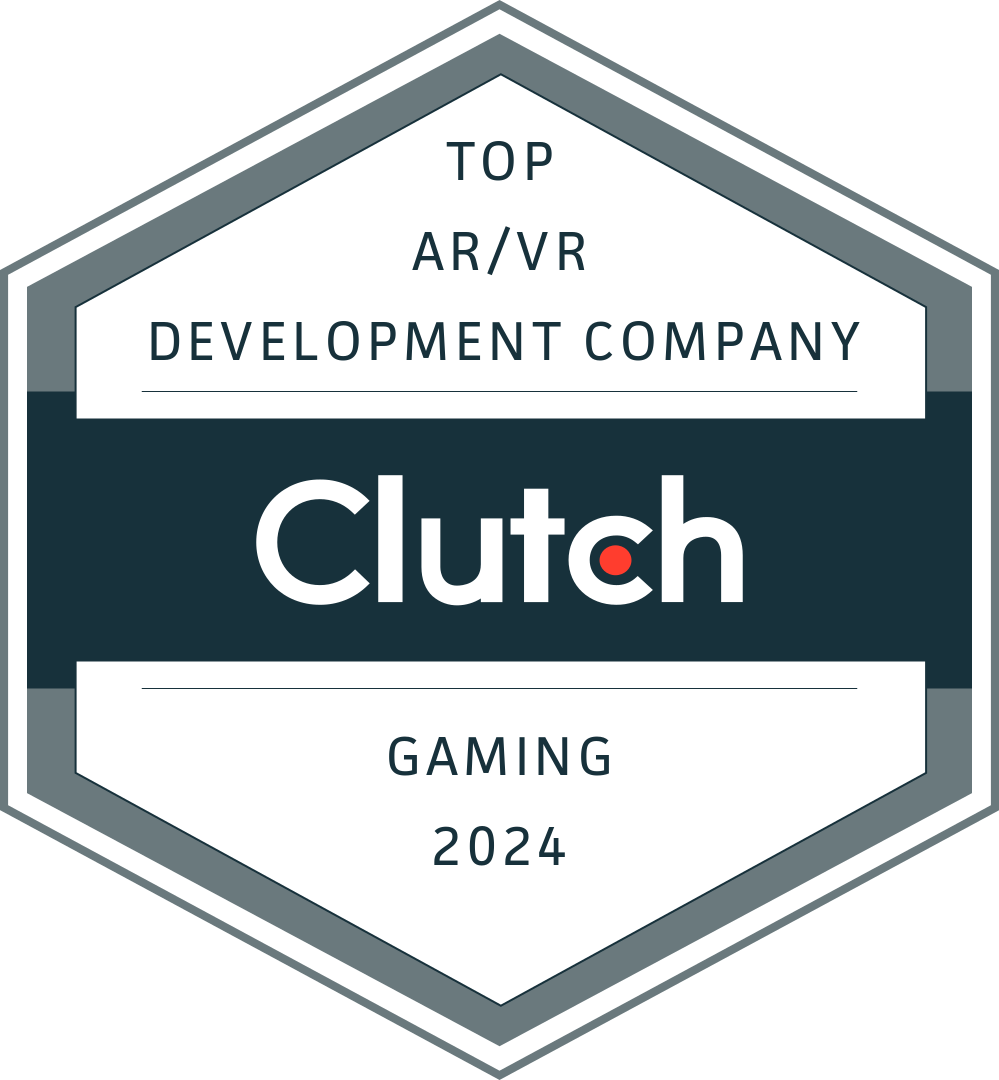
Gaming hardware has increased in variety over the decades, and players have been showing great interest in experiencing their favorite games across different platforms and screen sizes. It has given rise to the popularity of cross-platform games.
Building games that run on mobile, desktop, web, and consoles from a single codebase saves time, reduces costs, and reaches wider audiences. Game startup owners, entrepreneurs, and established developers quickly noticed it as an opportunity to generate revenue. It allows targeting players using different devices like PC, console, mobile, and more for one game alone. Let’s look at some stats:
- The worldwide mobile gaming market is predicted to be worth $775.69 billion by 2032 between 2023 and 2032.
- The PC games market is projected to rise to about $45.18 billion by 2030, reflecting a 6.18 % CAGR.
With cross-platform gaming becoming popular, owners can target different platforms and users and bring in revenue. Before we dive into cross-platform tools, let’s talk about cross-platform game development.
What Is Cross-Platform Game Development?
Cross-platform game development involves the development of games that players can play across different platforms (PCs, consoles, mobile devices, etc.) running on various operating systems and hardware. So, one player playing a multiplayer game on their smartphone may be competing with or teaming up with another player playing on a PC, offering the same gaming experience regardless of the device in use.
This was a concept until the 2000s, and even when developers started realizing it, the gaming community was far from getting plenty of accessible cross-platform titles to play. But technological advancements have brought development way ahead in the past few years. It has become widely anticipated not only for gamers but also for developers who can now reach a broader audience and expand the game’s potential reach.
Why Use Cross-Platform Development Tools?
Cross-platform development tools enable you to “write once, run everywhere,” unlocking benefits such as:
- Wider reach across iOS, Android, Windows, macOS, Linux, Web, and consoles
- Faster development by reusing assets and logic
- Lower maintenance effort with a single, unified codebase
- Consistent user experience and simultaneous updates on all platforms
Top Cross-Platform Game Engines
| Engine | Best For | Platforms | Language | Key Strengths |
|---|---|---|---|---|
| Unity | 2D/3D games, mobile-first | iOS, Android, Windows, macOS, Linux, WebGL, major consoles, AR/VR | C# | Massive Asset Store, Visual Scripting, XR support |
| Unreal Engine | AAA 3D graphics & high fidelity | Windows, macOS, Linux, iOS, Android, consoles, web, AR/VR | C++/Blueprints | Photoreal Rendering (Lumen, Nanite), Blueprint Scripting |
| Godot | Indie 2D/3D titles | Windows, macOS, Linux, iOS, Android, HTML5 | GDScript/C# | Open-Source, Lightweight, Node-based Scenes |
| Cocos Creator | Casual mobile & web games | iOS, Android, Web, Windows, macOS | JavaScript/TS | Fast HTML5 Deployment, Lightweight Runtime |
| Defold | Rapid 2D prototypes | Windows, macOS, Linux, iOS, Android, HTML5 | Lua | Small Build Size, Hot-Reload, Built-in Editor |
| Phaser | HTML5 browser games | Web, mobile browsers | JavaScript | Quick Prototyping, Rich Plugin Ecosystem |
| Flutter Flame | Casual mobile & web | iOS, Android, Web | Dart | Flutter Ecosystem, Hot Reload, UI-first approach |
| libGDX | Java-based 2D/3D control | Windows, macOS, Linux, Android, iOS | Java | Full Control, Free and Open-Source |
Engine Breakdowns and Examples
-
Unity
Unity is like the Swiss army knife of game development. It’s versatile, precise, and packed with tools. Its real strength lies in how approachable it is for both indie creators and enterprise studios. Developers craft both 2D platformers and sprawling 3D experiences with ease, thanks to its C# scripting and rich visual editor.
Unity’s magic lies in its Asset Store, which offers thousands of plug-ins, models, effects, and tools that radically speed up development. Want to deploy to iOS, Android, console, or web? Unity supports them all, and its XR capabilities make it a go-to for AR and VR. It’s no surprise that games like Hollow Knight, Pokémon Go, and Soccer & Head Pop were built with it.
-
Unreal Engine
If Unity is versatile, Unreal is majestic. Designed to produce cinematic-quality visuals, Unreal Engine lets you build lush environments bathed in dynamic lighting and detailed geometry, thanks to Lumen and Nanite.
It is powered by C++ under the hood, but don’t let that intimidate you. Its Blueprint System lets you design logic visually, making it accessible even to non-coders. Whether you’re designing high-fidelity RPGs or multiplayer shooters like Fortnite, Unreal handles scale, physics, and realism effortlessly. It is undoubtedly one of the best cross-platform game development tools.
-
Godot
Godot is a breath of fresh air for many developers. Its lightweight, intuitive, and fiercely open-source usability makes it perfect for creators who prefer flexibility over pre-baked systems. It features a scene-based architecture and an elegant language called GDScript.
What makes Godot truly special is its freedom: no royalties, no subscriptions, and full access to the engine’s internals. It’s ideal for smaller 2D or 3D games and rapidly growing as a favorite among indie developers who value creative control over commercial bells and whistles.
-
Cocos Creator
Cocos Creator is sleek, fast, and purpose-built for mobile and browser-based gaming. If you are fluent in JavaScript or TypeScript, this engine works like a charm. It features a powerful scene editor and blazing-fast runtime optimized for HTML5.
Particularly strong in the Asian market, Cocos is used in everything, from casual puzzles to real-time strategy games. With small APK sizes and rapid deployment, it’s perfect for studios aiming to dominate app stores or launch lightweight web titles. Games like Merge City is an example.
-
Defold
Minimal in size, Defold is mighty in capability. It embraces simplicity with a lightweight UI and Lua scripting, making it lightning fast for prototyping and casual 2D game development.
What sets it apart is how nimble it feels; real-time hot reloads, tiny build sizes, and a strong plugin system let indie teams and hobbyists quickly go from concept to launch. If you want to build something fast without bogging down your machine, Defold might just be your spirit engine.
-
Phaser
It is unapologetically HTML5-first. Built for JavaScript devs, it excels in creating fast, responsive browser games, educational apps, or hyper-casual experiences that launch instantly.
With full Canvas and WebGL support, robust plugin architecture, and an army of ready-to-use examples, Phaser brings a streamlined experience to web developers who want pixel-perfect control without touching native builds. Check out Connect the Ball, Super Bird, and Super Monkey.
-
Flutter + Flame
Flame is to Flutter what Phaser is to JavaScript; except you’re coding in Dart. Are you already building cross-platform games with Flutter? If so, Flame is the logical way to integrate games into your ecosystem.
Designed for clean, component-based architecture and simple 2D rendering, Flame lets you craft games with hot reload, responsive UIs, and smooth animation. It is ideal for casual mobile titles, arcade games, or gamifying app extensions, which you will see in Super Dash and Tomb Toad.
-
libGDX
libGDX offers raw, unfiltered control over every tick, frame, and loop in your game. Built on Java, it’s not a plug-and-play solution, it’s an open canvas where you’re in charge of everything, from physics to rendering.
Its extensive library system supports 2D and 3D, and it exports to desktop, Android, iOS, and web. For developers who want to learn the deep internals of game development or build custom engines themselves, libGDX is a solid foundation.
How to Choose the Right Engine
Want help choosing the right game engine? Here’s what you should know.
Choosing the right game engine isn’t just about picking the most powerful tool; it’s about aligning the engine’s strengths with your project’s needs, your team’s skills, and your monetization strategy. This detailed breakdown can help you make a confident decision:
-
Target Platforms
Start by asking yourself where players will experience your game. Each engine specializes in different export targets:
- Mobile-first? Unity, Cocos Creator, and Flutter + Flame shine here thanks to lightweight builds and mobile-specific tools.
- Console or PC? Unreal Engine and Unity are well-supported by platform holders like Sony, Microsoft, and Steam.
- Web or instant play? Godot and Phaser export seamlessly to HTML5, ideal for browser-based and hyper-casual games.
Red Apple Technologies Pro Tip: Don’t just build for where the players are now. Build for where they’ll be next.
-
Team Expertise
What coding languages and environments is your team comfortable with? If you have a JavaScript-specialist team, Phaser or Cocos could get you to market fastest. These are the engines and the languages they use.
| Engine | Language(s) |
|---|---|
| Unity | C# |
| Unreal | C++, Blueprints |
| Godot | GDScript, C#, C++ |
| Phaser | JavaScript |
| Cocos Creator | JavaScript, TS |
| Defold | Lua |
| Flutter + Flame | Dart |
| libGDX | Java |
Don’t have a team? Hire dedicated game developers to work on your project and make it a success.
-
Project Scope and Complexity
Is this a solo development side project or a full-blown commercial title? Which do you want it to be?
For small 2D prototypes or casual games, Defold and Godot can offer quick setup and lightweight tooling. If you’re looking for a massive 3D world, Unity and Unreal Engine can back up your ambition with expansive environments, complex logic, and advanced rendering. Unity and Unreal also offer robust networking solutions for multiplayer needs.
Choosing the right engine and its capability to suit your vision helps prevent overengineering or roadblocks later on.
-
Licensing and Cost
What is your budget, and how much are you willing to spend with the game’s growth?
- Free and open source: Godot, libGDX, and Defold have no hidden costs
- Royalty-based: Unreal requires a percentage share after a certain revenue threshold
- Freemium model: Unity’s pricing is tiered and recently updated, so studios must carefully evaluate thresholds.
If you’re aiming for rapid iteration without budget constraints, open-source options offer peace of mind.
-
Community and Plugin Ecosystem
Will you need community guidance, pre-built features, or third-party integrations? Unity and Unreal boast the largest user bases, abundant tutorials, and sprawling plugin markets. Godot and Phaser have tight-knit, active indie communities and plenty of GitHub-driven tooling. Flutter + Flame benefits from Flutter’s massive growth in cross-platform mobile development, though Flame itself is still maturing. When you choose a well-supported engine, you can build faster and solve problems without reinventing the wheel.
Red Apple Technologies: Your Cross-Platform Game Partner
We specialize in end-to-end cross-platform game development, crafting engaging experiences for mobile, web, and consoles. Our services include:
- Unity, Unreal Engine, Cocos Creator, and Godot development
- HTML5/Phaser browser games
- Flutter-based casual titles
- AR/VR and Metaverse game production
- Full art, animation, and live-ops support
With 14 + years of industry expertise and over 500 successful projects, we blend technical excellence and creative vision to build portfolio-worthy games on every platform. Trust us to scale your concept from prototype to global release, backed by our ISO-certified processes and dedicated teams.
Ready to launch your next cross-platform blockbuster? Schedule a Free Consultation. Let’s bring your vision to every screen.
To Have A Better Understanding On This Let us Answer The Following Questions
How does Red Apple Technologies support cross-platform game development?
Answer: Red Apple Technologies specializes in building games that run seamlessly across mobile, web, desktop, and console platforms. Using industry-leading engines like Unity, Unreal Engine, Godot, and Cocos Creator, we ensure your game reaches the widest possible audience with a single codebase.
Can Red Apple Technologies help me choose the right engine for my game?
Answer: Absolutely. We assess your project’s genre, target platforms, monetization goals, and team size to recommend the most suitable engine. Whether you’re building a hyper-casual mobile game or a multiplayer PC title, we align the tech stack with your vision.
Can Red Apple Red Apple Technologies help with monetization and analytics?
Answer: Yes! We integrate monetization models like in-app purchases, ads, subscriptions, and rewarded video, along with analytics tools to track user behavior, retention, and revenue performance.






























 Book an Appointment
Book an Appointment Get Instant Project Estimation
Get Instant Project Estimation WhatsApp Now
WhatsApp Now






 Book An Appointment
Book An Appointment WhatsApp
WhatsApp







